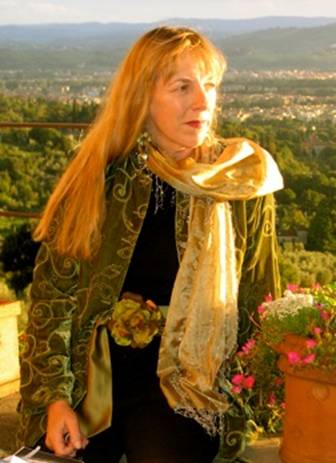Go gently into the darkness
It is the last day of the first month and we are on a train heading north to New England to bury John’s parents. Sixty years together, and now their ashes will be laid side by side in boxes underground. It is their time to go into the darkness. But, unlike flower bulbs planted with hope, there will be no renewal of life in the spring.
Outside the train window, landscapes of childhood: white houses with dark-green shutters, buildings of brick, and the white birches whose bark I peeled to write poems on. I could be in Krakow, bundled in furs and riding in a horse-drawn carriage, church bells tolling the afternoon hours, passing mounds of snow banks and a newly dug grave, strains of Chopin, and the wind stinging tears down my face.
new snow
blowing off the rooftops
their ashes
Orphan
All the houses on the lane have been abandoned and are covered with kudzu vines. We left our house in Kyoto years ago, but have come back to collect things that we neglected to take with us. At first we think we can fit them in our suitcases but, looking around at the pottery, the scrolls, and things that are now valuable from having been away so long, we realize that we’ll need a big box to send them back. I wander around the house reliving memories and come upon a section of the house that wasn’t there before—a small addition, the size of a closet. A cushion that looks like a dog bed, fills the entire space. It’s indented in the shape of a person curled up sleeping. I step down into an adjoining room, this one with a dirt floor—a makeshift studio with a hot plate and a few bowls. Against one wall is a wooden box filled with kimonos. I pull them out one by one, deciding whether to pack them up and take them back home. But they are all polyester, not silk, inferior in quality, and stained. There is even a wedding kimono, which is the height of insult. Making a wedding kimono out of polyester! I put them all back, feeling sad. This is someone’s shop or studio. On another wall, a rack of cards. All homemade, charming, with envelopes. Some are photos of Kyoto gardens, others watercolor illustrations. A neighbor Japanese woman pokes her head in. Asks who I am and why I’m here.
This used to be my house,’ I say.
‘Yes, gaijin lived here. I remember. After you left, Yukio moved in. A squatter.
He was an orphan. Tried to make a living from selling these things.’ She gestures to what I have already seen. “But he couldn’t, and now he is gone.’
knock on the door
awakens me from my dream
rumpled kimono

 Margaret Chula is a poet, teacher, and performance artist. She has published six collections of poetry, which can be viewed on her website http://www.margaretchula.com. Specializing in Japanese poetic forms, Margaret teaches workshops at universities, Zen centers, and at poetry conferences. One of her haiku was printed on Itoen tea cans distributed throughout Japan. She is currently Poet Laureate for Friends of Chamber Music in Portland Oregon.
Margaret Chula is a poet, teacher, and performance artist. She has published six collections of poetry, which can be viewed on her website http://www.margaretchula.com. Specializing in Japanese poetic forms, Margaret teaches workshops at universities, Zen centers, and at poetry conferences. One of her haiku was printed on Itoen tea cans distributed throughout Japan. She is currently Poet Laureate for Friends of Chamber Music in Portland Oregon.